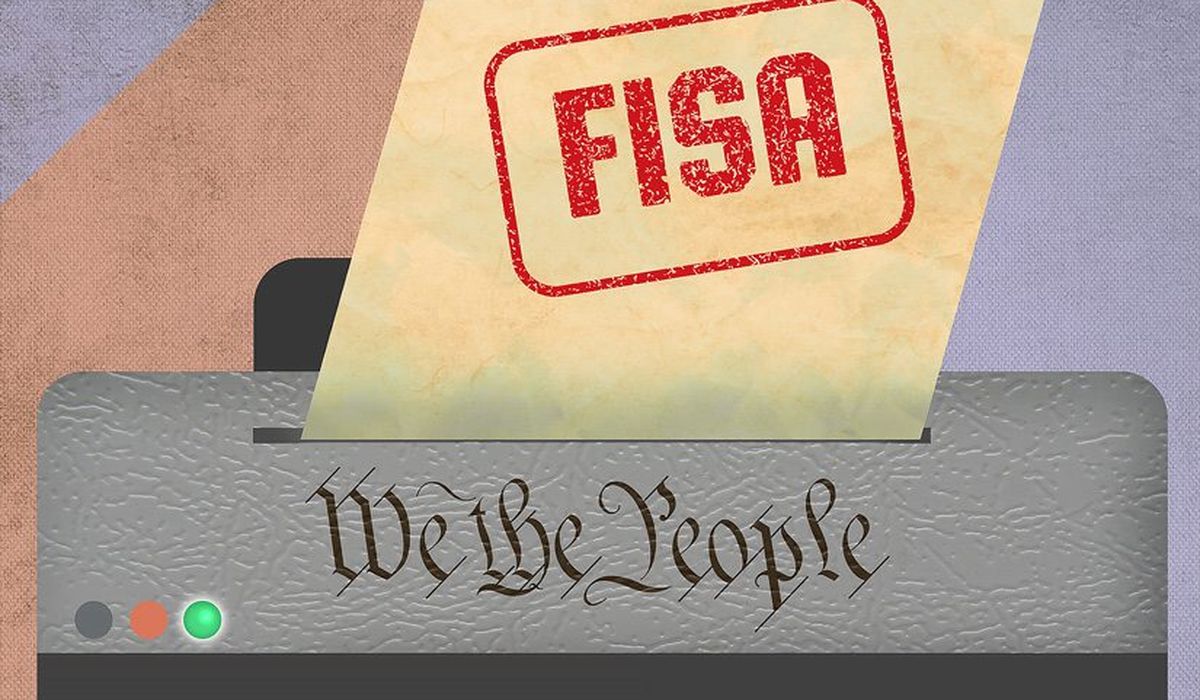|
On Wednesday, the Senate Judiciary Committee held the latest in a series of hearings on the Crossfire Hurricane investigation, questioning former FBI director Jim Comey. At multiple times in the hearing, Comey testified that the investigation was done “by the book.” Chairman Lindsay Graham responded, “God help us all if this was done by the book. If this is by the book, we need to rewrite the book.”
If we were writing such a book, our first chapter would implement strong presumptions that the FBI wouldn’t be able to ask for expansive surveillance authority from the Foreign Intelligence Surveillance Court (FISC)—where all these mishaps occurred—without the potential for an independent critical review of claims being made before the secret court. The best proposal to correct the imbalance in this process is the bipartisan Lee-Leahy Amendment, which passed the Senate with 77 votes earlier this year. An even broader bipartisan reform effort passed the House with 278 votes, but the two bodies were unable to reconcile their differences. “Checks and Balances” in the FISA Process How does the “book” read now? When the FBI wants to surveil a U.S. person for national-security purposes, it prepares an application. Before that application is ever filed with the FISC, the FBI is supposed to go through a rigorous process known as the Woods Procedures to determine its accuracy. As each factual allegation is verified, the process is to be documented in a “Woods” file and then certified by high-level FBI officials. Comey himself signed off on the Carter Page applications that were so central to the early stages of the Crossfire Hurricane investigation. Tellingly, Comey now says that without more thorough vetting, he wouldn’t sign them today knowing what he knows now. The DOJ Inspector General and others have examined the Crossfire Hurricane investigation under a microscope the last year, and through that lens we now see a near-careless indifference to these important verification steps. Worse still, former FBI lawyer Kevin Clinesmith recently had to plead guilty to intentionally altering material facts submitted in sworn submissions to the court to support a FISA application against Trump campaign associate Carter Page. In a fast-flung string of questions, Senator Mike Lee (R-UT) got to the heart of the matter with these revelations: "How should [the American people] have any confidence in the FISA process when certifications were provided but the full information wasn’t? When the duty of candor to the court wasn’t met? When no one seems to take accountability for anything, and this entire process is handled in secret, with a malleable standard leaving it almost without accountability? Should the American people have any confidence in the [FISC] or in those government lawyers appearing before it?" The question answers itself. Make no mistake – the investigation into Crossfire Hurricane revealed something rotten, not just in this particular case, but in the entire Star-Chamber-like process, regardless who might be manipulating it at any given moment. The FBI, the sole body before the FISC in the overwhelming majority of FISA proceedings, has acted with no concern for its duty to uphold the rights of an American citizen. It is time to hold this agency accountable. We need, as Senator Graham emphasized, a series of “checks and balances” to hold the FBI to its word and ensure accuracy in its applications. The Lee-Leahy Amendment offers significant checks for such applications. First, it codifies the Woods process, making it an affirmative, statutory duty to verify each fact and present the FISC with a complete account of the verification process itself. Second, in particularly sensitive investigations, it requires the FISC to appoint a privacy-oriented advocate to independently verify the FISA application’s material assertions unless the FISC issues a finding that it an appointment would not be appropriate. This is the key point of the amendment. The one-sided nature of the FISA proceedings are a grave risk to privacy and Fourth Amendment rights, yet in the vast majority of FISA proceedings, the government is alone with the FISC. This fact caused Senator Graham to lament that—during Crossfire Hurricane—no one was advocating for Carter Page, a U.S. citizen who was entirely innocent. As Senator Lee mentioned, this one-sided process is an invitation for abuse—if you “install a wasps’ nest in your child’s bedroom,” you can’t express surprise if the child gets stung. A privacy advocate could find errors in the FISA application and prevent any stings. In cases as riddled with error as Page’s, such an advocate could throw the nest out altogether. Congress should act now. Comey himself expressed the need for more accountability in the FISA application process while simultaneously saying that the FBI follows the book. If that book allows for the wanton incompetence, dishonesty, and disregard for privacy that so plagued the Crossfire Hurricane investigation, it’s time to make serious changes or throw the book out altogether. You can watch a full recording of the hearing here. Comments are closed.
|
Categories
All
|


 RSS Feed
RSS Feed